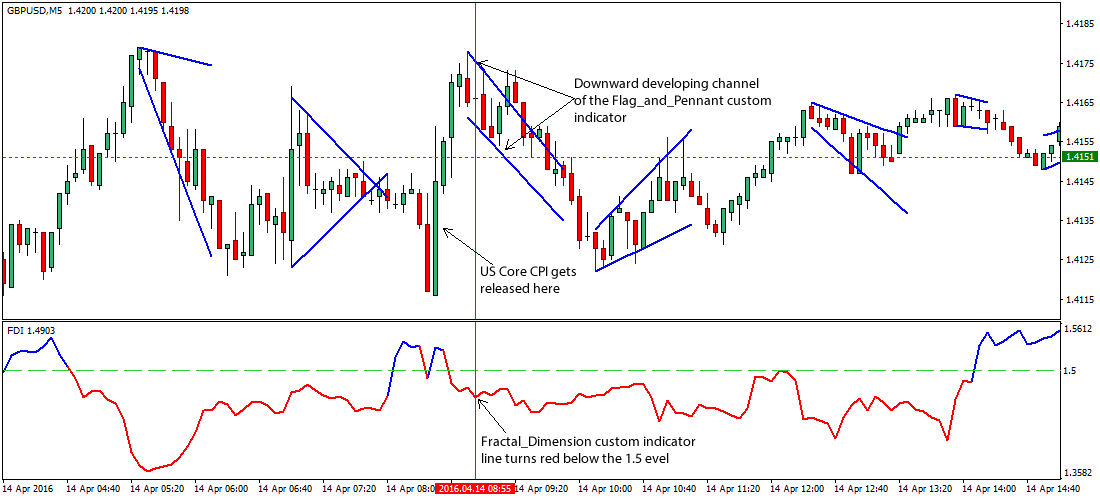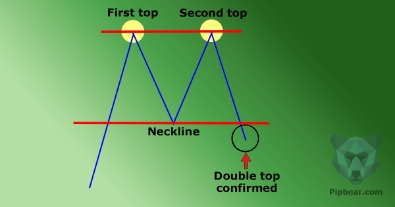Learn Financial Spread Betting UK
Content

It may therefore be worthwhile for an investor to open both a CFD and a spread betting account to allow the relative merits of each to be assessed in relation to any given trade. CFDs or contracts for differences are a popular form of financial derivatives. Traders speculate on an asset’s future price and agree to exchange the difference of an asset’s value over a given period. While most CFD trades end up in a loss, trading CFDs with the right strategies and knowledge can allow you to make profitable trades. It all comes down to the trading platform that you choose to trade with and whether it offers learning tools and relevant support.
While CFD trading and spread betting share a lot of benefits, they aren’t the same. They both enable you to go long and short on thousands of global financial markets, but they do so in different ways. Read our articles on how CFD trading works and how spread betting works for more information. Most spread betting providers have their special trading platforms ..whereas there are many more CFD brokers who apply the world’s most common trading platform, MT.
CFD vs Spread Betting: Conclusion
But since the market is unpredictable, there are situations when the expected movement does not occur and quotes continue to diverge. In this case, both orders will cause a loss, increasing the drawdown.Knowing what is betting spread and mastering that will help you boost your trading results. To succeed in spread betting, you need to learn how to use correlated pairs correctly and to follow simple recommendations on money management. If a trader learns how to accurately determine the maximum level of divergence of quotes, does not overload the deposit with high volume, and closes positions in time, his success is guaranteed. As a trader, you’ve got a lot to think about besides the financial instrument you’re trading. The financial markets are a hive of activity, with shares, foreign exchange (forex), commodities, indices, and crypto trading available.
The history of spread betting goes back to the first half of the 20th century. Invented by Charles K. McNeil, a US mathematics teacher, who later became a bookmaker in Chicago in the 1940s. McNeil invented a system where gamblers could bet on whether the score of both sides of a sporting event would be more or less than the expected outcome of the bookmaker. Gamblers benefited from a new way to gamble and bookmakers gained new opportunities to make money. Join thousands of traders who choose a mobile-first broker for trading the markets. Here at CAPEX, we offer traders an excellent demo account feature and plenty of learning tools to support them through their trading journey.
Both approaches offer unique advantages and disadvantages that traders must weigh before making a decision. Spread betting is tax-efficient and involves no commission charges when buying on a spread bet, while CFDs offer the opportunity for offsetting of losses against profits for tax purposes and allow for trading on margin. Ultimately, the decision between CFDs and spread betting will depend on the individual trader’s preferences, risk tolerance, and trading goals. To make informed decisions, traders must navigate the complexities of each approach, understand their costs and charges, and carefully manage their positions to avoid significant losses. It is also essential to understand the tax implications of CFDs and spread betting and seek professional advice to fully understand their personal tax obligations.
Final thoughts – Trade CFDs with CAPEX
Financial spread bets must have a fixed timescale, but they can range from a day to more than a month away. Even daily bets that roll over have some fixed end in the far in the distance. No spread betting trade is truly open ended, even though it might feel that way. Also the stated duration of a given spread betting trade does have an impact both on overnight financing costs but also the bid ask spread shown to a trader. Spread betting and Contracts for Difference (CFD) online trading platforms may have misled traders about the financial risks and possible negative outcomes from commodity trades. Any trader who lost money trading CFDs or spread bets on commodities with IG.com – which is operated by IG Markets Ltd and IG Index Ltd – may have a claim.
Despite being regulated by the FSA in the UK, the US consider spread betting to be internet gambling which is forbidden. It is also worth noting that all income in the USA is taxable (including gambling winnings). CFD trades on margin https://g-markets.net/helpful-articles/how-to-trade-triangle-chart-patterns-in-forex/ which gives you greater leverage than traditional trading methods. The margin requirement is lower, which means that your trades can earn higher returns. You can open an account with as little $1,000 and have no capital requirements.
- Traders decided how much they want to bet per unit in the underlying movement of a financial asset.
- Luckily, here at CAPEX, we offer our traders two smooth and user-friendly trading platforms – The MT5 Trader and CAPEX WebTrader.
- CFDs are complex instruments and come with a high risk of losing money rapidly due to leverage.
- In some cases, these costs can even succeed the profits made on your account; therefore, it is important that you deposit a sufficient amount of funds in your account to cover any holding costs.
In broad terms, a financial spread bet is a CFD wrapped up as a bet for tax reasons. With financial spread betting in the UK and Ireland, any profits are normally tax-free. Both spread betting and CFD trading are equally hard to make money – only around 20% of traders make money.
As mentioned in this article, spread betting the forex markets involves the use of leverage, also called trading on margin. When opening a position, forex spread betters are only required to place a fraction of the full trade value as their deposit. However, forex leverage comes with many risks that all traders should prepare for beforehand. Spread betting is considered tax-efficient in the UK and allows traders to speculate on a range of global instruments without commission charges. CFDs allow traders to offset losses against profits for tax purposes and do not attract stamp duty, but commission charges are applicable to CFDs. Both approaches offer leverage, allowing traders to deposit only a small percentage of the full value of the trade.
Spread betting vs CFD trade
Even though these two types of trading share a lot in common, you also need to be aware of some important differences. Spread betting vs cfds is unique to the UK as the main benefit is the tax breaks (read on for more info), but CFD trading is offered Globally. Except the Americans, they don’t allow CFD trading, or in-fact US citizens to have accounts with non-British brokers offering CFDs. An FCA-regulated CFD broker isn’t allowed to open accounts for our friends across the pond. Even though spread betting is technically gambling because it is primarily used for financial speculation and losses can exceed stakes and even account balances in some cases the FCA regulated financial spread betting.
- The answer is in the prices, especially if you’re using it in conjunction with direct market access.
- CFDs are risky instruments that are not traded on an exchange but rather over-the-counter (OTC); meaning between two parties that agree on the terms.
- You can sign up with our online broker demo account and experience CFD trading with zero risks.
- Many regulators explicitly indicate that they do not consider claims from individuals.
- To this day, hedge funds and institutional investors use CFDs to both speculate and hedge their financial positions.
That’s pretty scary stuff when you consider some of them, including myself, trade pretty large position sizes. Lack of a coherent answers around CFDs vs Spread Betting pushed me to try and discover the answers myself. This article discusses the best tips and strategies for currency spread betting, along with the differences between spread betting vs CFDs. It is important to find a suitable trading method for you in order to trade forex successfully. Choosing which instrument to trade isn’t an easy task, which is why CAPEX encourages traders to research each instrument before investing.
To spread bet or to trade CFDs?
One of the main similarities are that there is no stamp duty payable on equity trades. This is a particularly important point as stamp duty rates on stock trades is currently 0.5%. It’s important to understand the market dynamics, including market volatility, liquidity, and trends, to identify profitable trading opportunities. If Wall Street has a margin requirement of 5%, for example, then you’ll need to have 5% of your position’s total value in your account in order to open the trade. I could not more highly recommend Guardian Stockbrokers, everyone has been brilliant. The attentiveness, training and technical detail provided, has enabled a fast track learning and an ability to manage the portfolio in a way that would far exceed my own capabilities.
While CFD trading and spread betting have many similarities, they’re both unique trading instruments, and one might be more suitable for you than the other. Buying the spread is the simultaneous purchase of the first basket of instruments and the sale of the second basket, while selling is the opposite. Furthermore, Pepperstone offers social trading through MetaTrader 4 and Myfxbook in addition to traditional online trading. The social trading platforms you’ll find on these sites can be extremely helpful for connecting with spread bettors and learning new trading strategies, especially if you’re interested in trading forex. Keep in mind that spread betting is illegal in the United States at the moment, so this might be something you ought to take into consideration. Because of this, US residents cannot open spread betting accounts with most spread betting companies in the UK; however, they can trade Contract for Difference (CFDs).
There are different maximum leverages for different assets, and the maximum leverage for each asset is decided by your broker based on the risk involved. If you are trading CFDs or spread betting, you may or may not customize the margin that you use. In terms of placing orders, closing trades, opening trades and the market movements themselves, there is no real noticeable difference to the individual retail trader between trading CFDs and spread betting. Contracts for Difference (CFDs) represent a financial contract between a trader and their broker to exchange the difference between the opening price and the closing price of an asset. The other reason to trade using spot Forex, and not the other products, is one of scale. Big volume traders, we’re talking hedge funds here and not private traders, like to transact in the underlying market.
Like Spread Betting, CFD Trading uses prices formulated on the financial markets, offering transparency and accuracy in pricing. You can deal on both rising & falling markets, and leverage is available to magnify your exposure in the markets. Spread Betting also uses prices rooted in the markets, providing transparency and accuracy in pricing.

Contract size – with spread betting, the contract size is an amount of money per point, determining whether the market rises or falls. On the other hand, for CFDs you buy or sell contracts which represent an amount per point in the underlying market. If you are a remote trader, our platform is available when trading from home, thanks to our advanced mobile technology. Our forex spread betting platform is also suitable for traders on-the-go, whether you prefer to trade on a mobile or tablet device.
What Are the Main Differences Between Spread Betting and CFD Trading?
Nevertheless, only a few can locate the funds required to get sustainable profits. They let traders speculate on an asset’s rate with no need to physically own the underlying instrument.In this article, you will learn what is a CFD trading, what is betting spread and the difference between them. Also, you will discover what you need to take into account while choosing any of them for your trading plan. CFDs are complex instruments and come with a high risk of losing money rapidly due to leverage. 72% of retail investor accounts lose money when trading CFDs with this provider. You should consider whether you understand how CFDs work and whether you can afford to take the high risk of losing your money.
Given the possibility of unlimited losses, bookmakers put a limit on how much your bet can move against you relative to your initial stake, also known as margin. If losses do exceed 10% of the initial value or stake, gamblers will be prompted to pay more money to keep it open or the bookmaker will automatically close the bet at the current price. Gamblers can manage their risk by selling their stakes in a bet or set stop losses to limit their potential losses.
Categories: Forex Trading
Contact Us

